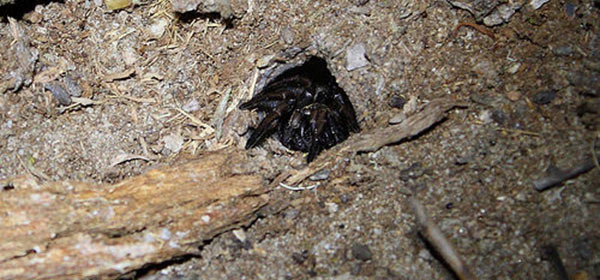One of Australia’s most fearsome spiders may provide the solution to protecting stroke victims from suffering brain damage.
Researchers at The University of Queensland and Monash University have found that a protein in the DNA of the funnel-web spider’s venom shuts down an ion channel known to malfunction in brain cells after strokes.
In cell experiments, the harmless chemical (called Hi1a) protected brain cells from a toxic flood of ions unleashed after a stroke strikes.
During a stroke, a blockage stops or slows the flow of blood to an area of the brain. The brain cells, suffering from a lack of blood and oxygen during a stroke then switch to metabolic pathways that don’t rely on oxygen. This creates a condition called acidosis and the oxygen-starved regions of the brain start to become damaged and die off.
Hi1a works by blocking the acid-sensing channels in the brain.
In studies conducted on rats, a single dose of Hi1a administered up to eight hours after a stroke protected brain tissue and drastically improved neurological performance.
“We believe that we have, for the first time, found a way to minimise the effects of brain damage after a stroke,” said Professor Glenn King from the UQ Institute for Molecular Bioscience.
“Hi1a even provides some protection to the core brain region most affected by oxygen deprivation, which is generally considered unrecoverable due to the rapid cell death caused by stroke,” he said.
“This world-first discovery will help us provide better outcomes for stroke survivors by limiting the brain damage and disability caused by this devastating injury,” he said.
Stroke is one of this country’s biggest killers and a leading cause of disability, striking someone in Australia every 10 minutes.
Related articles:
Stroke stats in your postcode
How to recognise a stroke
Citrus reduces risk of stroke

